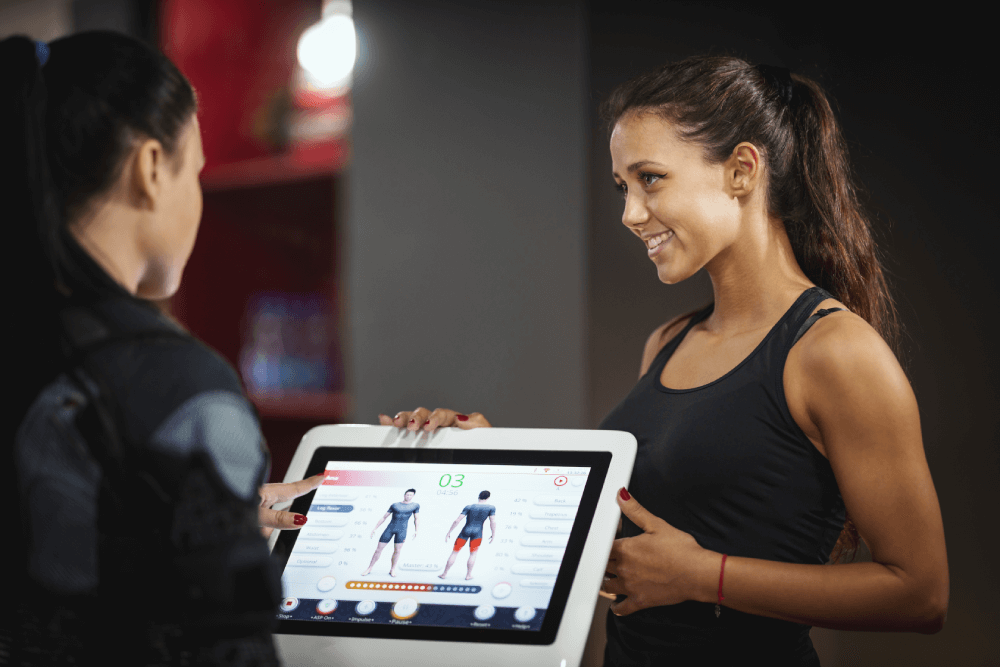Personal training apps have revolutionized the fitness industry, bringing expert guidance and personalized workout plans to your fingertips. Whether you’re a fitness novice or a seasoned athlete, these digital tools can help you achieve your health and wellness goals with convenience and efficiency. This comprehensive guide will explore the world of personal training apps, their benefits, and how to choose the right one for your fitness journey.
What Are Personal Training Apps?
Personal training apps are mobile applications designed to provide users with customized workout plans, exercise demonstrations, progress tracking, and often nutritional guidance. These apps aim to replicate the experience of having a personal trainer, offering flexibility and accessibility at a fraction of the cost of traditional in-person training.
Benefits of Using Personal Training Apps
Using a personal trainer app can offer numerous advantages:
-
- 24/7 access to workout plans and guidance
-
- Cost-effective alternative to in-person personal training
-
- Customizable programs based on your goals and fitness level
-
- Progress tracking and performance analytics
-
- Video demonstrations for proper form and technique
-
- Motivation through challenges and community features
-
- Integration with wearable devices for comprehensive health monitoring
Types of Personal Training Apps
Workout Planning Apps
These apps focus on creating customized workout routines based on your goals, available equipment, and time constraints.
Fitness Tracking Apps
Primarily designed to monitor your physical activity, these apps often integrate with wearables to track steps, calories burned, and heart rate.
Comprehensive Fitness Apps
Combining workout planning, tracking, and often nutrition guidance, these apps offer a holistic approach to fitness.
Specialized Training Apps
Some apps focus on specific types of training, such as strength training, yoga, or running.
How to Choose the Right Personal Training App
Selecting the best personal training app for your needs involves considering several factors:
-
- Your fitness goals (weight loss, muscle gain, general fitness)
-
- App features (workout variety, progress tracking, community support)
-
- User interface and ease of use
-
- Compatibility with your devices and any wearables you own
-
- Cost and subscription model
-
- User reviews and ratings
Making the Most of Your Personal Training App
To maximize the benefits of your chosen app:
-
- Set clear, achievable goals
-
- Be consistent with your workouts and app usage
-
- Take advantage of all features, including progress tracking and community support
-
- Regularly update your profile to ensure your workouts remain challenging and appropriate
-
- Combine app guidance with proper nutrition for optimal results
The Future of Personal Training Apps
As technology continues to advance, we can expect personal training apps to become even more sophisticated. Innovations like AI-powered coaching, virtual reality workouts, and more advanced integration with health monitoring devices are likely to shape the future of digital fitness coaching.

Are Personal Training Apps Right for You?
Personal training apps can be an excellent tool for those seeking guidance, motivation, and structure in their fitness routines. They offer a flexible, affordable alternative to traditional personal training, making expert fitness advice accessible to a broader audience.
However, it’s important to remember that apps cannot fully replace the personalized attention and hands-on corrections that an in-person trainer can provide. For those with specific health concerns or those new to exercise, consulting with a fitness professional before starting any new regimen is advisable.
For individuals looking to complement their app-based training with personalized guidance, online fitness coaching can provide an excellent middle ground. Additionally, those seeking more specialized nutrition advice might benefit from nutrition coaching services.
If you prefer a more hands-on approach, consider exploring options for private personal training or semi-private personal training in your area. These options can provide a balance between personalized attention and the convenience of app-based training.
Remember, the key to fitness success lies not in the tool itself, but in your commitment to using it consistently and effectively. With the right personal training app and a dedicated approach, you can take significant strides towards achieving your fitness goals, all from the convenience of your smartphone. Training from Home: For those leveraging these apps to skip the gym commute, we have a complete resource on setting up your space and maximizing your personal training at home experience.


